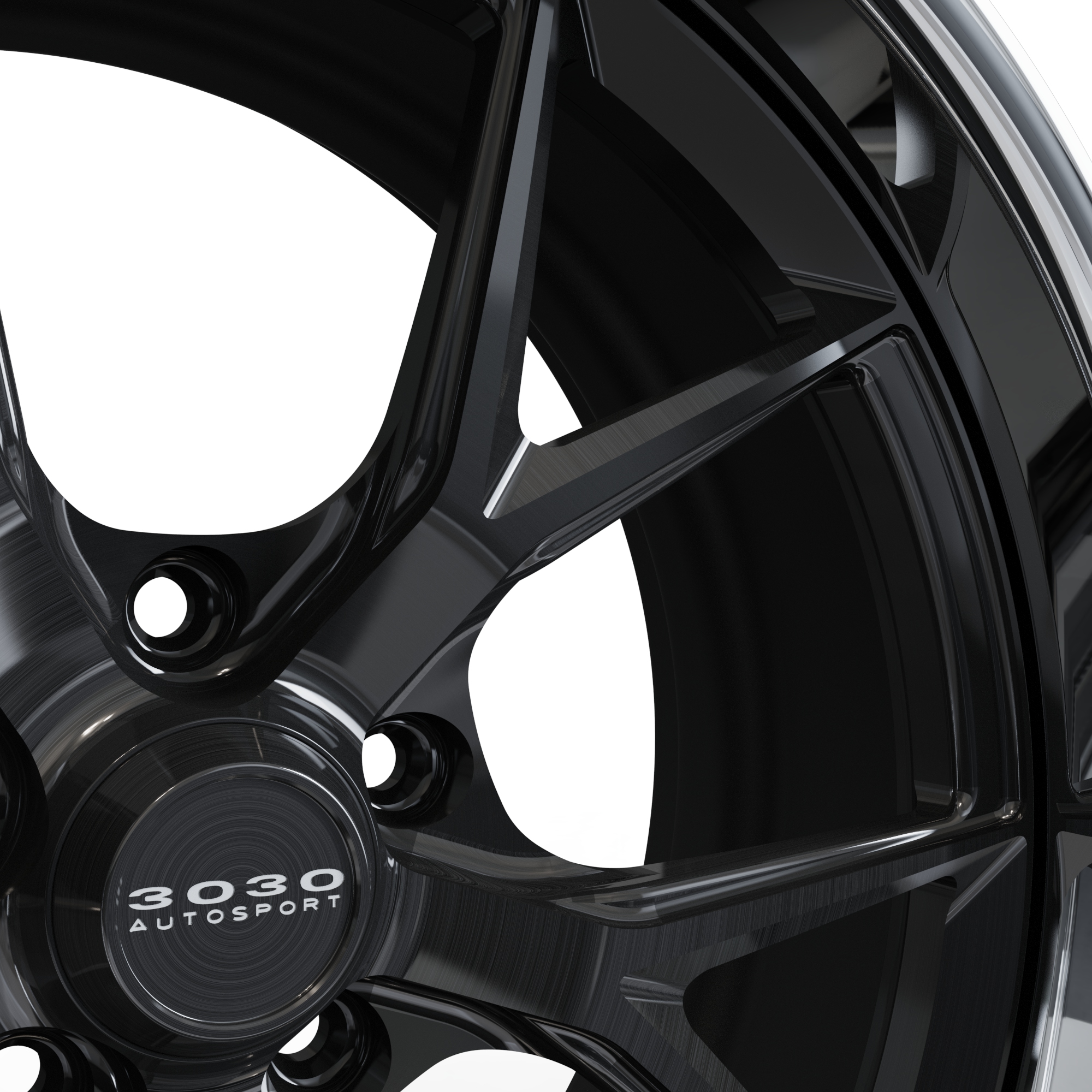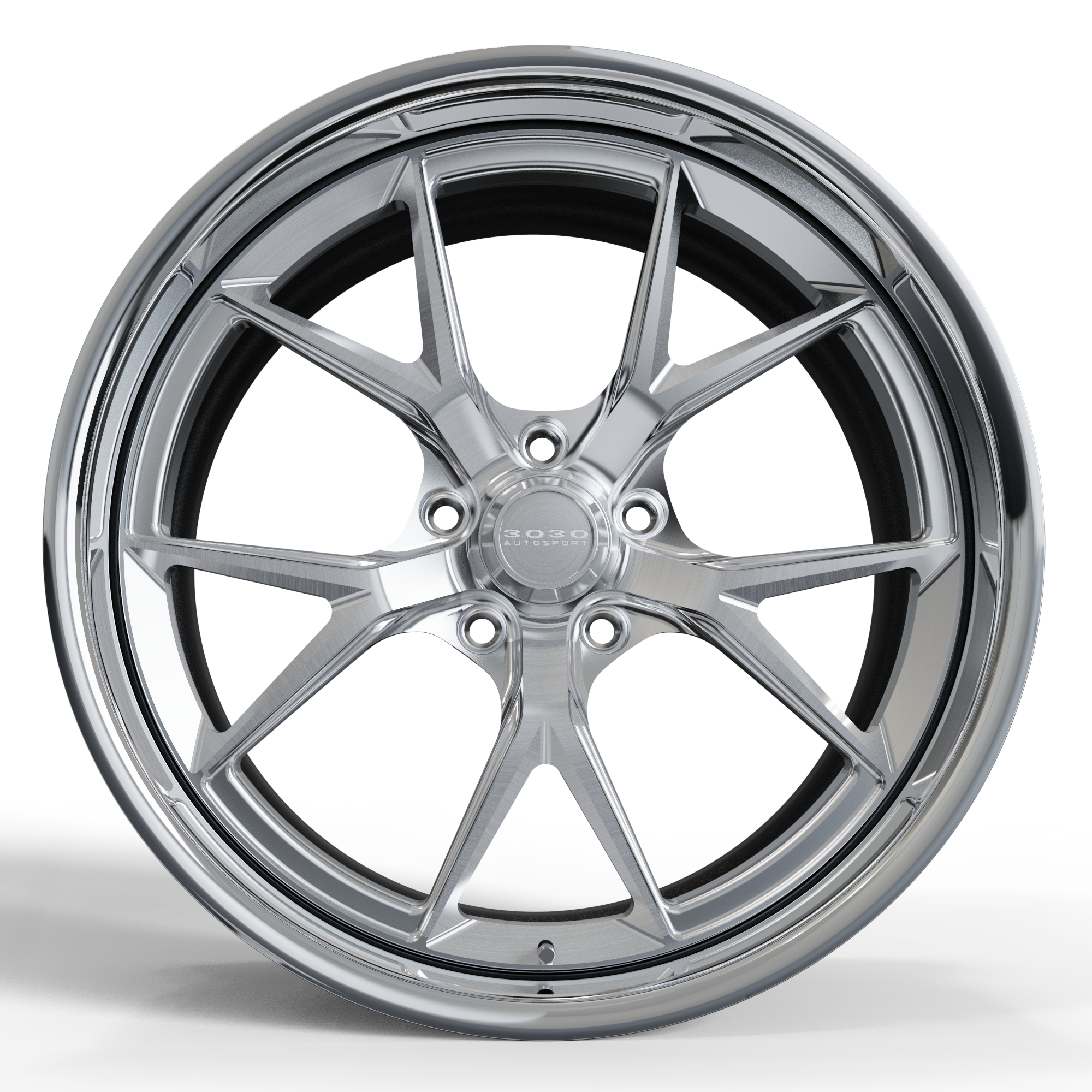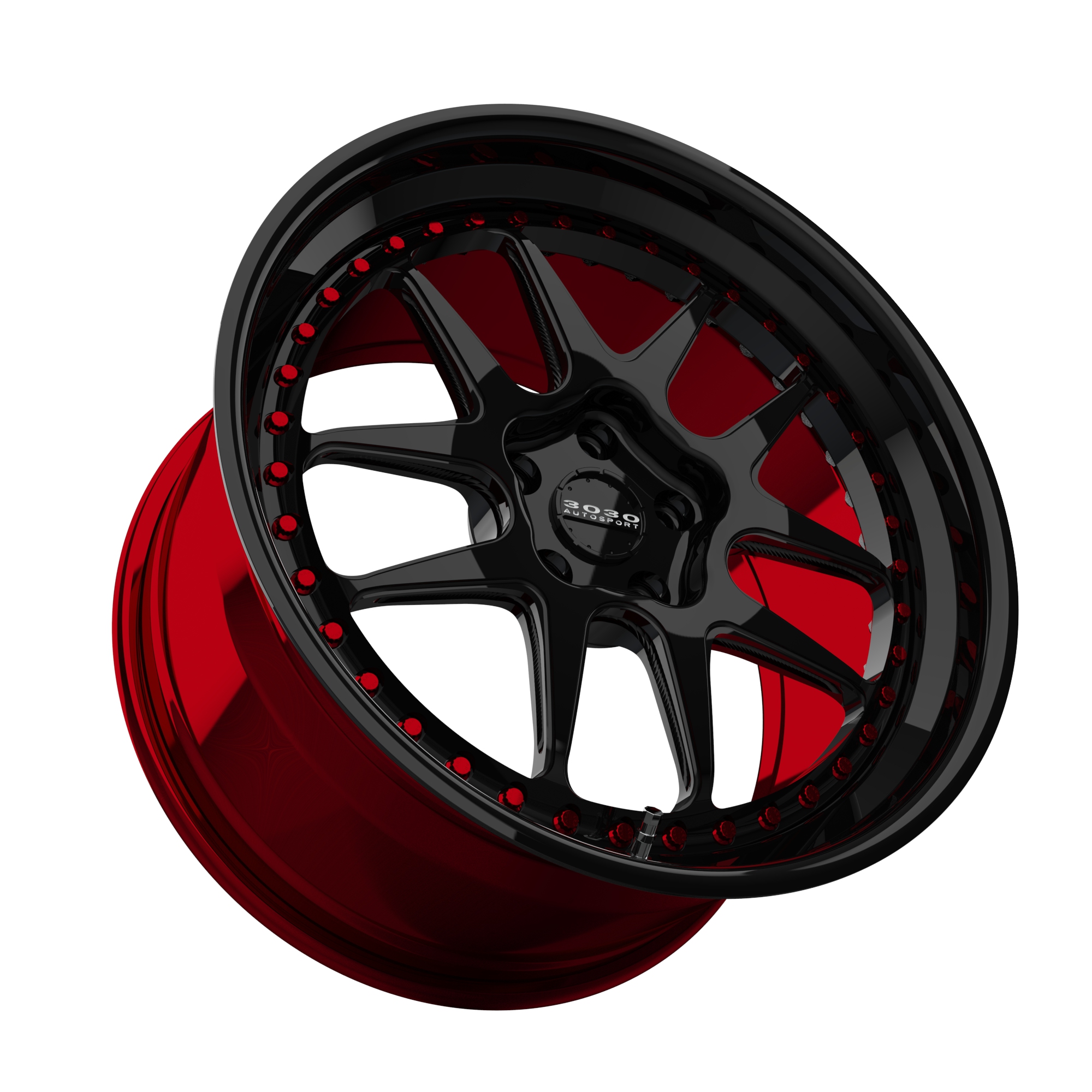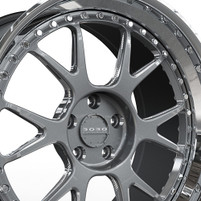


Top 5 Questions About Forged Performance Wheels
We at 3030 Autosport are a forged wheel manufacturer in the USA. That said, we thought it was a good idea to put fact-based information together complete with references to help you decide if forged wheels are your best choice.
“There’s a lid for every pot” as they say, and plenty of options out there for you. We believe you can’t match the strength, durability or style you get in forged wheels. However, budgets sometimes get in the way and rightfully is a big part of the equation just as safety, durability and design count .
Here are the facts:
- 1.What is a “Forged Wheel”?
Forging definition:
Forging is a manufacturing process that involves shaping metal by applying force through hammering, pressing, or rolling. Forged aluminum refers to aluminum alloys that have undergone a forging process. The process increases the strength and durability of the metal by aligning its grain structure and eliminating porosity. Forged aluminum is commonly used in the aerospace industry, automotive components, and high-performance applications where strength and light weight are crucial.
How forging applies to a wheel
Advantages of a forged wheel:
Strength: Forged wheels are generally stronger than cast wheels. The forging process aligns the grain structure of the metal, resulting in a wheel with enhanced strength and durability.
Weight: Forged wheels are often lighter than their cast counterparts. The forging process allows for the removal of excess material, making the wheel lighter without compromising strength.
Performance: Many high-performance and racing vehicles use forged wheels due to their combination of strength and lightweight properties.
Reference Article: https://www.qcforge.com/forging-innovations-blog/...
- 2.What’s the difference between Forged vs Cast Wheels?
The Short and Easy Explanation:
Forged wheels are stronger and safer if designed and engineered well. When strength-to-weight ratio increases, safety and durability increase even when the weight of the wheel decreases. We encourage 3rd party testing and FEA (Finite Element Analysis) of wheel designs. At 3030 Autosport, we FEA all wheel designs to exceed the industry standards and 3rd party test worst case scenarios.
The Detailed Version:
The primary differences between forged and cast wheels lie in the manufacturing processes, material characteristics, strength, weight, and cost. Here's a breakdown of the distinctions:
Forged Wheels:
Manufacturing Process:
Forging involves shaping metal using compressive force, typically through the use of dies and hammers.
The process aligns the grain structure of the metal, resulting in increased strength.
Material Characteristics:
Forged wheels are made from a solid piece of billet aluminum or other alloys.
The alignment of the grain structure enhances the material's strength and reduces the likelihood of porosity.
Strength:
Forged wheels are generally stronger than cast wheels due to the grain structure alignment and absence of porosity.
They are often used in high-performance and racing applications where strength is crucial.
Weight:
Forged wheels are typically lighter than cast wheels. The forging process allows for precise shaping and the removal of excess material, contributing to reduced weight.
Again, it takes more metal for a cast wheel to meet the strength-to-weight ratio of a gorged wheel, so, spokes get thicker and heavier in cast wheel designs.
Cost:
Forged wheels are more expensive to manufacture, making them generally more expensive for consumers.
Cast Wheels:
Manufacturing Process:
Casting involves pouring molten metal into a mold and allowing it to solidify.
Cast wheels are formed by filling molds with molten aluminum.
Material Characteristics:
Cast wheels are made from liquid metal that solidifies in the mold.
The material may have slight variations in grain structure and may contain porosity.
Strength:
Cast wheels are generally not as strong as forged wheels due to the casting process, which may introduce porosity and other inconsistencies.
Weight:
Cast wheels can be heavier than forged wheels, as the casting process may not allow for as much precision in shaping and material removal.
Cost:
Cast wheels are more cost-effective to produce, making them a more affordable option for many consumers.
Conclusion:
Choosing between forged and cast wheels depends on factors such as budget, intended use, and preferences. For high-performance or racing applications where strength and weight are critical, and failure is not an option, forged wheels are the standard. Cast wheels, on the other hand, are more commonly used for everyday vehicles where actual performance is not a consideration.
Reference Article: https://www.compass-anvil.com/forging-vs-casting#...
- 3.Do I need forged wheels?
Whether you need forged wheels depends on your specific requirements, preferences, and the intended use of your vehicle. Here are some factors to consider when deciding whether forged wheels are necessary for your situation:
Performance Requirements:
If you have a high-performance or racing vehicle and demand the utmost strength and lightness, forged wheels might be beneficial. The enhanced strength-to-weight ratio can contribute to improved performance.
Budget:
Forged wheels are generally more expensive than cast wheels. Consider your budget and whether the added performance benefits justify the higher cost.
Everyday Use vs. Specialized Applications:
Forged wheels are often used in applications where strength, weight, and performance are critical, such as sports cars and racing vehicles. If your vehicle is primarily for everyday use, the benefits of forged wheels might not be as crucial.
Weight Considerations:
If reducing unsprung weight is a priority for your vehicle (which can impact handling and acceleration), forged wheels, known for being lighter than cast wheels, could be a consideration.
Aesthetics and Personal Preference:
Some individuals choose forged wheels for their aesthetic appeal and unique designs. If appearance is a significant factor for you, it may influence your decision.
Why would forged wheels be more aesthetically appealing? The strength-to-weight ratio advantage of forged aluminum allows designers to create a forged wheel with less aluminum than cast wheel would need to get the same strength factor. This is why forged wheels can have
Terrain and Driving Conditions:
Consider the conditions in which you'll be driving. If you frequently encounter rough terrain or potholes, the added strength of forged wheels may be an advantage.
In summary, forged wheels are not a necessity for every vehicle or every driver. They are often chosen for specific performance or aesthetic reasons, and their benefits may be more pronounced in specialized applications. If you're unsure whether you need forged wheels, evaluate your driving habits, performance requirements, and budget to make an informed decision based on your priorities and preferences.
- 4.Can I race on cast wheels?
Yes. You can, but you’ll sacrifice performance. Strength-to-weight ratio is a factor that doesn’t change in the physical requirements of the type of racing and the vehicle properties of your race car or truck.
- 5.What are the Advantages of Forged wheels over Cast/flowformed wheels
Forged wheels offer several advantages over cast or flow-formed wheels, particularly in terms of strength, weight, and performance. Here are the key advantages of forged wheels:
Strength:
Forged wheels are known for their superior strength. The forging process involves shaping the wheel from a solid piece of aluminum, aligning the grain structure of the metal. This results in a wheel that is less prone to fractures, cracks, or other structural issues compared to cast or flow-formed wheels.
Weight:
Forged wheels are typically lighter than cast or flow-formed wheels. The forging process allows for precise shaping and the removal of excess material, contributing to reduced weight. This reduction in unsprung weight can result in improved handling, acceleration, and braking performance.
Durability:
The enhanced strength and structural integrity of forged wheels make them more durable, especially in high-stress environments such as racing or performance driving. They are less likely to fail under extreme conditions.
Performance:
The combination of increased strength and reduced weight makes forged wheels desirable for high-performance applications. Vehicles equipped with forged wheels may experience better overall performance, including improved handling, responsiveness, and fuel efficiency.
Customization:
Forged wheels are often more customizable in terms of design, finish, and size. The forging process allows for intricate designs and unique aesthetics, making forged wheels a popular choice for those seeking a personalized look for their vehicles.
Heat Dissipation:
Forged wheels tend to dissipate heat more efficiently than cast wheels. This property can be beneficial in high-performance situations where heat buildup can occur, such as during aggressive braking or prolonged periods of driving.
Exclusivity:
Due to the higher manufacturing costs, forged wheels are often associated with a more exclusive and premium market. This can be appealing to individuals seeking a unique and high-end appearance for their vehicles.
Reference Article: https://www.quora.com/Are-forged-wheels-stronger-than-cast
https://www.cornellforge.com/forged-vs-cast-whats-the-difference/
Conclusion:
It's important to note that while forged wheels offer these advantages, they are typically more expensive than cast or flow-formed wheels. The choice between these wheel types depends on factors such as budget, intended use, and personal preferences. For everyday driving, cast or flow-formed wheels may provide a cost-effective and practical solution, while forged wheels are often favored for high-performance or customized applications.

